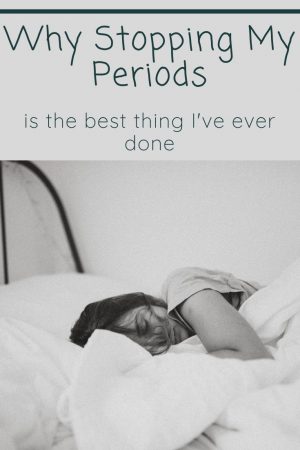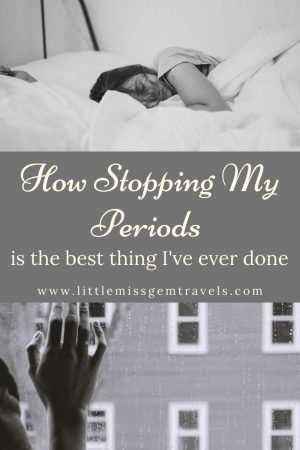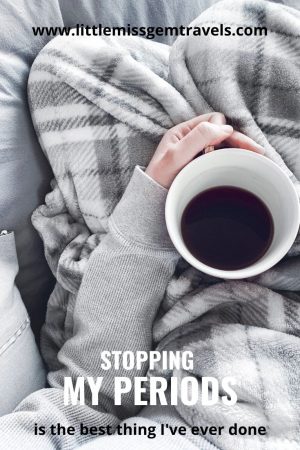The posts in this blog may include affiliate links. This means that when you decide to purchase anything through these links I get a small commission at NO extra cost to you.
You might have realised by now that as well as writing about the things I love such as weekend city breaks, books and cosy winter evenings, I also like to write about the more mundane but important subjects such as mental health, living as an introvert, and physical health so it was inevitable that I would eventually write about periods.
My periods were a massive issue for many years and as they affected the way I travelled for a while I definitely feel that it’s important to explain why stopping my periods has had such an impact.
Why Stopping My Periods is the Best Thing I’ve Ever Done
My Period Story
I was born with a growth hormone disorder so between the ages of five and sixteen I was on daily growth hormone injections, this alongside suffering with disordered eating habits for most of my life resulted in my periods not starting until I was seventeen years old.
At first they really weren’t a big deal, I would bleed for approximately five to seven days and it became clear that my cycle was between thirty and forty days. I remember speaking to my GP and being told that it was perfectly fine for my body to have developed its own cycle and that there was nothing to worry about. However my main concern was always the pain, agonising stomach cramps which would have me doubled over in pain and cause me to be tired and irritable. The only advice I was given by the GP was to take hot baths and Ibruprofen when needed.
I lived like this until I was 21 years old, in the May of 2007 I went into hospital for spinal surgery. Something I wasn’t told at the time (and didn’t find out until three months later by a GP) was that when you have major surgery your periods stop. The duration can be different for everyone but apparently it’s normal to miss two to three periods afterwards as it is your body’s way of allowing you to recover, retaining all of the vital vitamins and minerals you need to return to a normal healthy state. My periods however didn’t return for six months.
This was when the real issues started.
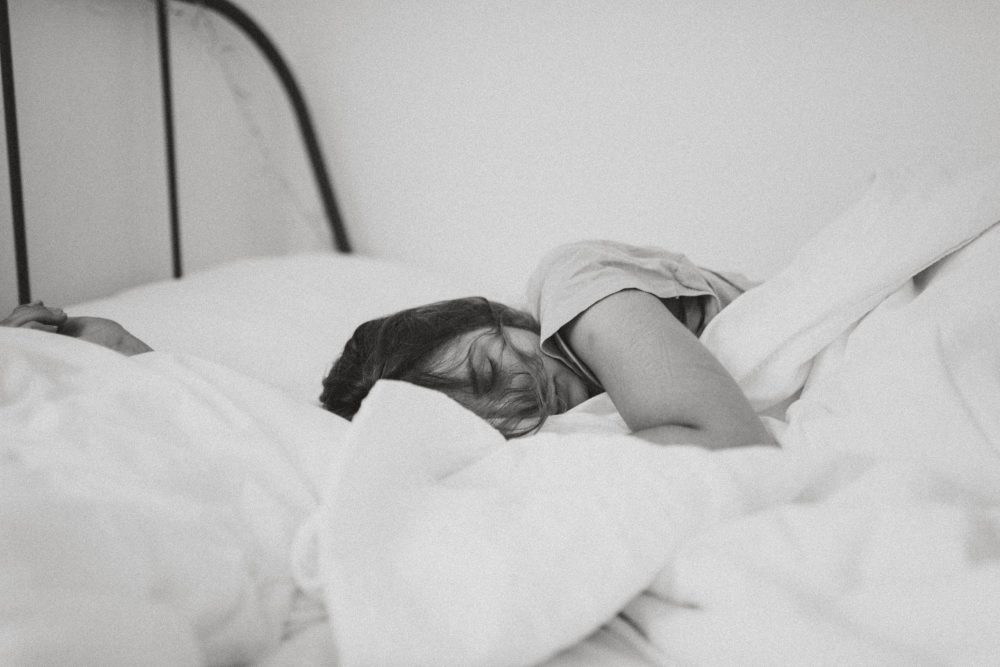
From then on my cycle was erratic and the pain became almost debilitating.
Just over a year after my surgery (around June of 2008) I took a look at my diary and realised that I had only had two periods in six months, so I made an appointment with my GP and voiced my concerns. I was told that it was perfectly normal to have irregular periods and that my body just needed time to get back into a routine and cycle.
I decided I needed to track my periods so I would note down how many days between each one and how many days they lasted. After another six months I was back at the GP with my notes. I had only had another three periods and they had lasted just four days each time. This meant that the gaps between were getting longer and longer.
I was prescribed Naproxen. This was the first time a doctor had actually recommended anything other than Ibuprofen. I was told that I would need to take the tablets for at least six months (unless I had side effects) before I would really see any results. The issue I had with this was that I am prone to migraines and the only thing that works for them is Ibuprofen which unfortunately you cannot take with Naproxen so I had to stop taking it after three months.
Over the next three years I saw another three GPs, all of whom told me that everyone experiences different menstrual cycles and that hot baths and painkillers were the best solution. I was also told at one of these appointments that some women find taking The Pill helps but due to my migraines and the issue I had with Naproxen they weren’t prepared to risk it.
I was sent to the hospital for a scan but nothing showed up. At this point my periods would last five to seven days and I would go anything from ten days to sixty days between them.
I was beginning to realise just how difficult it is to be listened to and taken seriously when trying to discuss period issues. I was beginning to feel as though maybe I was just paranoid, that maybe all the information we had been given at school had been based on that particular teacher’s experience, not what others could expect.
I was back in the GP office when I had been sent home from work the day before, as I’d spent over an hour in the toilet being violently sick due to the stomach cramps. My Manager had been pretty sympathetic, but I think this may have been partly the shock of seeing how horrendous I looked and she didn’t want me facing customers looking like the living dead.
I was sent to the hospital for another scan but again, nothing showed up.
I left with another prescription in my hand: Mefenamic Acid. I took this for around a year, although I did find it difficult as I was advised that I should ideally take the first dose the day before I was due to start bleeding, this was almost impossible as my cycle was becoming more and more irregular. At this point in time my period was lasting roughly 6-7 days but I was now skipping months at a time. I was suffering more and more with stomach cramps, I was having to take time off work, I was doubled over at times and they were getting heavier and heavier.
Another issue I feel is important to note is that even though the time between my periods were getting longer and longer the bleeding itself was getting worse. I was buying the thickest sanitary towels I could find and using six to eight per day. It was getting expensive, especially when you include the cost of painkillers, prescriptions, bath salts etc.
After a year of trying Mefenamic Acid I was switched to Tranexamic Acid to try and reduce the amount of blood I seemed to be losing, blood tests had revealed that I was becoming anaemic and so I was then also advised to increase my iron intake with tablets.
After another year the GP decided to suggest taking the two types of Acid together.
Then in December 2016 I saw a GP who changed my life. I had notes from the previous three years. My periods were by this point lasting between eight and twelve days (the longest was fourteen) but I was also going months at a time with no bleeding at all. At one stage I went nine months and when I phoned the GP after six I was actually asked if there was a chance I could be pregnant (!)
She then said the words that changed everything.
“This isn’t normal”
I nearly cried. For the first time in nine years I was being listened to and taken seriously. She suggested I go back to the hospital for a scan just so she could see the results for herself. I returned in January 2017 and this is when she suggested something different.
She asked if I had been recommended the Mini-Pill. I told her that I had been told a couple of times that I couldn’t be prescribed The Pill due to my migraines, but she asked again about the Mini. I made it clear that I didn’t know there was a difference and this then led to a long conversation where she described the differences and that stopping my periods altogether was actually a possibility.
I started taking it almost immediately, one week later I had one more period which lasted for five days, four weeks later I had four days of light spotting and then that was it. I haven’t had a period since…
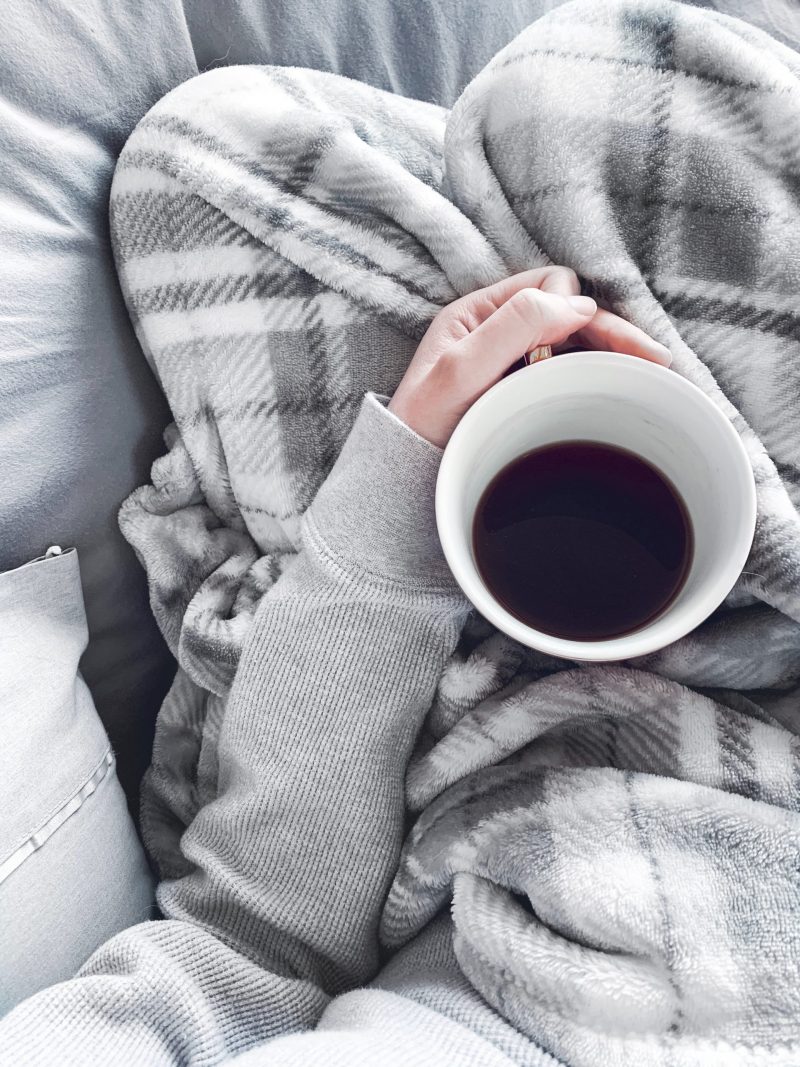
Why I Stopped My Periods
In one aspect I was lucky, periods never affected my moods, I never had PMT. What I did have was anxiety. When you eventually get to a point where your periods are so unreliable, so impossible to plan and predict that you start to dread going out, you realise what a negative effect they are having. I started avoiding going to social events because I was scared my period would start whilst I was there.
The stomach cramps were also completely random and would hit like a blot of lightning, sometimes the pain would start at the same time as the bleeding, sometimes the following day, but it was often so bad that it would physically bring me to my knees. On one occasion my Dad actually asked if I needed an ambulance because he was so concerned by the fact that I was curled in a foetal position on the kitchen floor. Then there was the accompanying dizziness, nausea, and vomiting.
The feeling of isolation, being ignored is a huge issue that women have to deal with when going to see doctors regarding our menstrual health, not just from male doctors, I spoke to multiple female doctors over the years and each time came away feeling as though I was being stupid, paranoid, that I was doing something wrong by not being able to control and understand my own body.
By the time I saw that final GP in 2017 I was hitting a brick wall. I even mentioned to her that I wanted information on how to have an elective hysterectomy. It seemed by this point that having my internal organs removed and having to deal with the menopause was going to be preferable to another thirty or so years of pain and anxiety.
Living Without Periods
Personally, stopping my periods has been lifechanging. I know from reading online that different people react differently to taking the mini-pill. For some it can cause mental health issues such as anxiety and mood swings. For some it doesn’t stop the bleeding altogether, but just reduces the blood loss which helps alleviate the pain and adapts the cycle.
For me it worked quickly and efficiently, I noticed a marked difference within a couple of months. The last period I had was unfortunately during a trip to Marrakech and my lasting memory of that trip is being in a huge amount of pain for the final twenty-four hours and for the entire flight home.
This is why writing about my periods on this blog is so important, my experiences with having irregular, agonising periods during trips away had a negative impact, the thought of being on a plane or even in a foreign country and having to deal with what was happening to my body caused a huge amount of anxiety and stress.
I now don’t have this as part of my life anymore, I can plan trips and go away and not have to worry about my own body ruining my enjoyment. Of course that tiny inkling of paranoia has never quite gone away so I keep a spare sanitary towel in every bag I own.
I should also point out the financial benefits of stopping my periods as well, I no longer have to bulk buy extra-thick sanitary towels, as the Mini-Pill is classed as a contraception it is free on the NHS so I don’t have to pay for prescriptions anymore, it’s reduced the amount of painkillers I’m taking and has meant that I no longer need to boost my iron intake.
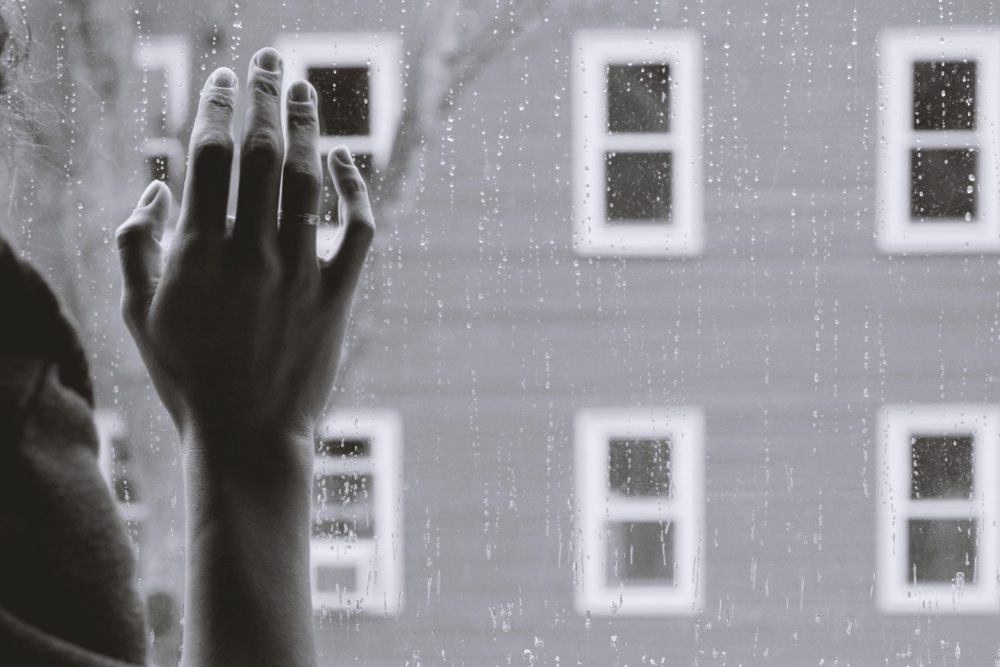
Advice I Would Give
If I were to give any advice to anyone who is having issues with their periods it would be to keep talking to GPs. If you’re not happy with the first one you speak to then keep going back, you may irritate the hell out of the receptionist but it is important to find someone who will listen to your concerns. If your surgery has a website and details the medical staff then look for one who specialises in women’s health.
Normally I’m not a fan of people trying to self-diagnose but do some research yourself. Look at the symptoms of various gynaecological issues and see if any match your problems, be careful not to convince yourself you have a particular illness, but mention these conditions and symptoms to your GP and tell them that you want scans, blood tests etc.
Don’t expect prescribed medications to work immediately, or if someone you know takes a particular medication that it will work the same way for you. Unless you have side effects you may need to take certain medications for a number of months before you notice a significant change.
Write down everything. Keep a detailed diary of your menstrual cycle and show the GP, don’t be vague and say that it’s irregular and heavy, be as detailed as possible.
Don’t forget, I am in no way medically qualified so please speak to your GP if you need to. You have the right to be listened to and you have the right to take control of you body if you need to.
